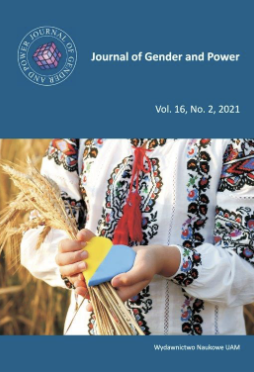Gender Imbalance, Romantic Inclinations and the Supremacy of Patriarchal Traditions in Buchi Emecheta’s The Bride Price
Gender Imbalance, Romantic Inclinations and the Supremacy of Patriarchal Traditions in Buchi Emecheta’s The Bride Price
Author(s): Augustine Uka NwanyanwuSubject(s): Gender Studies
Published by: Uniwersytet Adama Mickiewicza
Keywords: gender; patriarchy; agency; Emecheta; feminist consciousness; imbalance
Summary/Abstract: The paper investigates the notion of the female as an agency in the reaffirmation of gender and patriarchal cultural supremacy. It draws upon the different experiences of Emecheta’s characters in the narrative, The Bride Price. Applying the gender theory, the paper notes that female individuals are the active agents of socializing gender imbalances in patriarchal African societies. African female authors like Emecheta unwittingly participate in socializing women to accept gender imbalances and female oppression. The aim of the paper is to examine the impact of cultural and economic orientations on female identity in The Bride Price. In effect, the paper shows the implications of gender resistance in the text. It argues that the narrative affirms conformity with culture and tradition. An obvious observation is that the narrative shows that the female is an active recipient of socialization and gender leanings in African culture. The major finding is that through the experiences of the major female characters as agents, Emecheta rejects revolutionary feminism and accepts masculinity and patriarchy as supreme. In the end, the paper reveals the implications of reading the narrative from the perspective of agency gender with a view to understanding how romantic inclinations can spur total gender balance in Africa and show how women have participated in the cultural oppression of women. What is remarkable is that this agency perspective to gender theory in African women writing has rarely been discussed. Finally, the idea behind this approach is to open up the various modes of feminist consciousness in African literature and contribute to the on-going debate on gender imbalances in African literature and cultural philosophy.
Journal: Journal of Gender and Power
- Issue Year: 16/2021
- Issue No: 2
- Page Range: 111-140
- Page Count: 30
- Language: English

